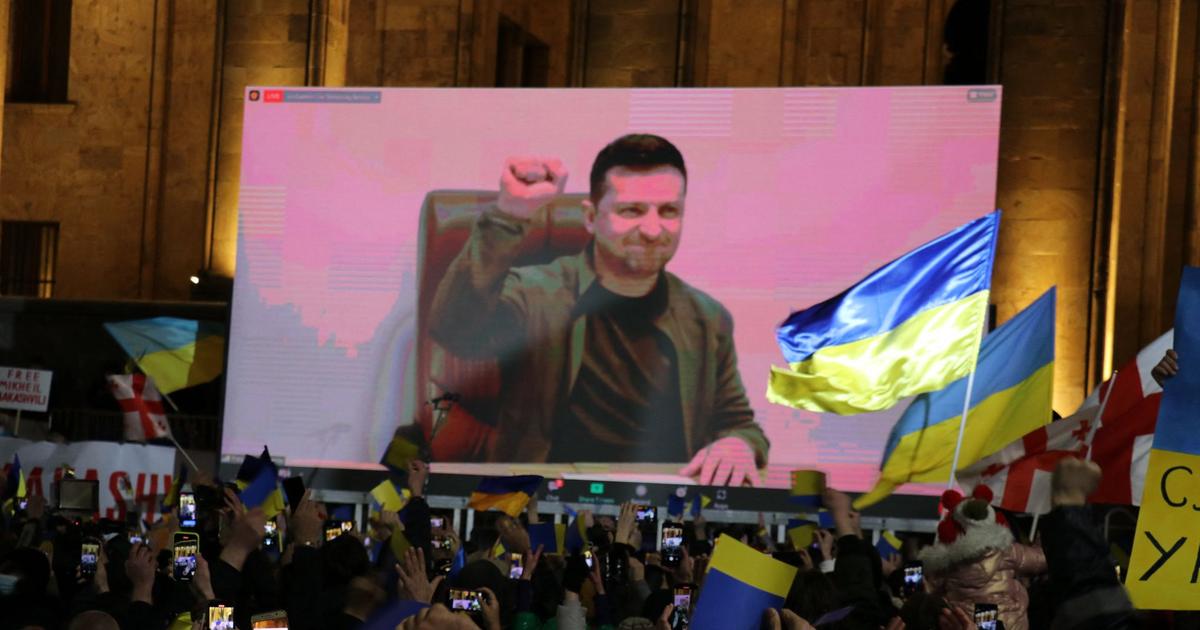Like regular assaults, the messages spread, repeat themselves, hoping to hit a target.
Volodymyr Zelensky, the Ukrainian president, would have
"left Kiev",
his armed forces
would "prevent civilians from fleeing Mariupol",
the Russian army would provide
"humanitarian support to the populations"
that it would have
"liberated",
an extraordinary meeting of the council of Russian security and defense would study
“the refusal of NATO”
to bring its assistance to Ukraine…
To discover
LIVE - War in Ukraine: "heavy fighting" in the south and north, Mariupol in a critical situation
Follow information on the war in Ukraine with the Figaro application
Read also
In Russia, prison for those who describe or criticize the war
Every day, the Russian invasion of Ukraine, which was unleashed in a cloud of lies - such as that of an alleged genocide against the Russian-speaking populations, or that of nuclear armament granted to Ukraine - is accompanied by a flood of more or less elaborate false information.
Compared to bombings, they represent only a marginal threat.
But they add to the backdrop of an all-out war.
By seeking to terrify or disorganize the Ukrainian resistance, they are trying to create a demobilizing snowball effect...
This article is for subscribers only.
You have 85% left to discover.
Freedom has no borders, like your curiosity.
Keep reading your article for 1€ the first month
I ENJOY IT
Already subscribed?
Login






